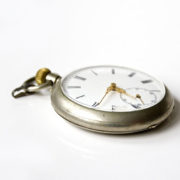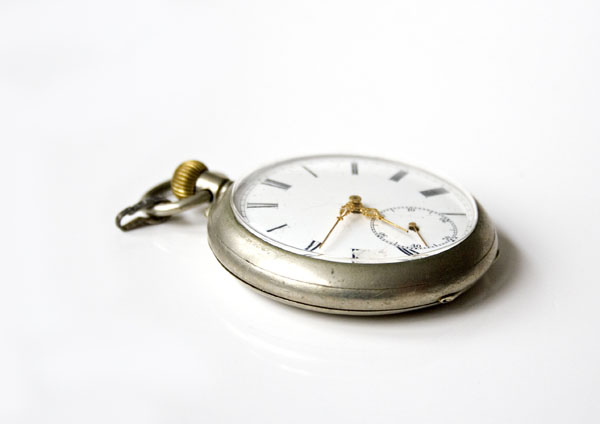How Long Does It Take To Brew Beer
I have noticed a lot of people arrive here at home brew answers looking for an answer to the above question. It’s not surprising really.
It’s one of the most common questions new home brewers are looking to find the answer and I can see why. I remember brewing up my first few batches and couldn’t wait for them to be ready. I still do to some extent get overcome with the urge to open a bottle early, but one thing that all home brewers need to have in spades is patience.
Our range of beer kits and recipe packs for example take around 3 hours to actually brew, but between 3 – 5 weeks before you can start drinking.
In this article I will look to clear up a few things about how long it really takes to make beer.
Table of Contents
How Long Does It Take To Brew
If you are brewing your first batch of beer then maybe you have bought a beer kit. You should have a set of guidelines to give you a rough idea of how long the brewing, fermentation and maturation takes.
As I said before the thing with home brewing is you have to be patient. Rushing things leads to mistakes, like forgetting to put something in (guilty) and generally poorer beer at the end of the day. That being said though, I have on occasion had a beer go from grain to bottle in a little over a week. This isn’t necessarily ideal however and if a beer has not finished fermenting it can lead to more problems.
If you bottle before fermentation has completely finished. The bottles will over-carbonate and potentially get to the point where the bottles explode under the pressure. This is obviously dangerous and causes all sorts of mess. Making sure fermentation is complete is really important before packaging your home brew.
I know when you are brewing you can get too excited about getting from brewing to the drinking stage. Nobody wants to wait for ages and the sense of anticipation to see what you have crafted is immense.
When you rush though, the majority of times you will end up with beer that is worse than if you would of waited patiently.
I work at a commercial brewery and the time from grain to glass is important. If we move a beer through the system quicker it frees up equipment and saves money. We never sacrifice quality though. If a beer needs it stays in the fermenter until we resolve the issues and it meets the quality we set.
As home brewers we don’t have these pressures so waiting a few days or weeks more isn’t a problem.
Here is a quick run through of the process
Making a Yeast Starter: Not always necessary and you don’t always have to do it the day before. You could make it the morning of your brew day to pitch in the evening. Generally if I am using sachets of dry yeast I just rehydrate to the packet instructions and pitch without the starter, so minus 1 day. Check here on how to make a yeast starter
Brewing: This is always going to take a day. Well it will take a good few hours.
Primary Fermentation: This is going to take as long as is necessary. Sometimes all activity in the fermenter will be over in as little as 3 days sometimes it will take longer.
This visible activity isn’t all of the fermentation however. When the visible signs of fermentation stop (airlock bubbling and foamy krausen on top of the beer) there are still things happening in the beer. This is the secondary stage of fermentation.
Secondary phase/fermentation: Secondary fermentation is discussed a lot. In most cases I just leave the beer in the vessel it’s already in. There is no need to transfer most beers to a new fermenting vessel in most cases (take a look here for exampes). The secondary phase is where the yeast clears any harsh flavours that are created during fermentation and also where the yeast will drop out and flocculate. If you leave it for 2 weeks you’ll end up with a clearer and cleaner tasting beer than if you leave it for 2 days.
How do you know that fermentation is completely finished and the beer is safe to bottle or keg?
Take a hydrometer reading on consecutive days and make sure the gravity is not dropping still.
You need to make sure the remaining fermentables are gone. If there is still fermentation you have to leave it, otherwise you’ll end up with bottle bombs.
This is the stage where you have to decide whether to leave it to condition for longer in the fermenter or bottle/keg it. I would not suggest you rush things leave it a few more days because ultimately you’ll end up with worse beer than if you take your time.
Bottling: Once you’re beer is bottled or kegged you are going to need to leave it for a week at least, preferably 2 weeks. Sooner than that and the beer won’t carbonate fully and you’ll be drinking flat beer.
So as you can see by my workings I would estimate roughly 3ish weeks to make a beer. Like all things though that is subject to change on a case by case basis. If you are brewing a strong beer then it needs more conditioning and things like barley wines and imperial stouts you will be looking at months rather than weeks to get the best beer.
One thing is key though, have patience
That being Said, Give It Time!
No matter how long you’ve been brewing or how good you think you are there are times when you design a recipe, brew it full of anticipation and then when you finally get round to opening the first bottle or pouring the first pint from the keg, it just doesn’t live up to what you had imagined.
This has happened to me a few times. I brew a beer that I think this is going to be the best thing I’ve ever brewed and it just doesn’t quite meet expectations or even worse it’s just bland and non-descript.
I have to emphasise though that whilst this might happen to me very rarely it’s more a case of me not giving the beer enough time to condition and mature. This area of my brewing is something I desperately need to work on.
Have Faith And Give It Some Time
The thing about brewing your own beer is it’s difficult to have enough patience to let it develop in terms of flavour and condition. As an example, one thing you will notice especially with malt driven beers is that they really start to peak after you have drunk three quarters of the batch.
What I find though especially with these powerful maltier style beers is if you give them enough time you will still get that balance come through, the trouble I seem to have is giving the beer a few months to get to that point.
Don’t Judge A Beer Whilst It’s Still Young
My point is don’t be disappointed when you open a beer that’s only a few weeks old and it’s not perfect. Put the beer out of the way in the back of the cupboard and leave it for a month or two, more if necessary i.e. stronger beers and then decide if the beer is any good or not. I assure you it won’t be the same beer you opened when it was just 2 weeks old.





Leave a Reply
Want to join the discussion?Feel free to contribute!